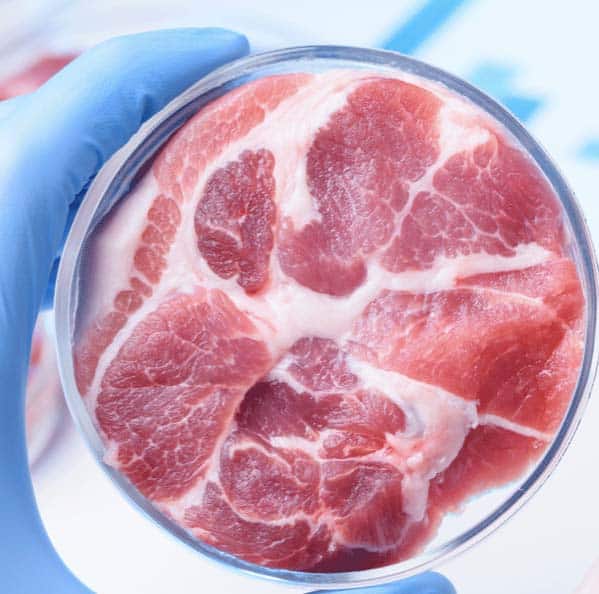Farmers raise concerns about cultured meat

Some farmers see the advances in the development of cultured, or cell-based meat, as potential competition to traditional meat production, others from the farming community have suggested it could create a premium for pasture-reared meat.
Research into farmers’ attitudes towards cultured meat, published in the journal Frontiers in Sustainable Food Systems, reports the views of UK farmers about this potentially disruptive technology.
The farmers also talked about public health effects of the new technology, how it could lead to consolidation of power in the food system, and how it might affect rural life.
While there have been many academic papers about the opportunities for cultured meat, very little work has been undertaken to ask how it might affect farming.
Now, a team of farmers, researchers, and start-ups - funded by the Biotechnology and Biological Sciences Research Council in the Transforming Food Systems Programme and led by Cirencester's Royal Agricultural University (RAU) - is looking to redress this balance.
Dr Lisa Morgans, Senior Lecturer in Animal Health and Welfare at the RAU, who led the focus group research said: “To ensure disruptive technologies like cultured meat are developed in an ethical and responsible way, it is essential that we engage with, and include, farmers in the research process.”
Cultured Meat & Farmers is a two-year study looking at farmers’ attitudes to cultured meat, potential opportunities and risks, and how, if production is scaled up, it could affect UK agriculture.
The Frontiers paper reports the first phase of the project - investigating farmers’ attitudes to the technology.
The study summarises discussions with 75 farmers, from across the UK.
Among the threats that were discussed were potential effects on health, and where the product would be pitched in the market, as either a high value or low value protein - would it compete with steak or mince, chicken breast or chicken nugget? A common concern was the lack of information on the technology.
One farmer in the study said: “There's so much money being thrown at [cultured meat] that we can't afford to ignore it. We need to be raising all sorts of questions about things like waste products and sourcing the inputs and that sort of thing. We should be pinning them down on that now. They’re telling us this is the future; they’ve got to tell us what it means.”
But others saw opportunities. One extensive lamb and beef producer thought that marketing their produce as “the real stuff” might give them a competitive edge compared to protein produced in a bioreactor. Others could imagine new markets where farms supply plant or animal based raw materials for the process.
The next phase of the study will look at how cultured meat might affect different sectors within agriculture. The farmers talked about far-reaching impacts across the whole livestock industry where margins are small and the industry is under financial pressure.
Professor Louise Manning, from the University of Lincoln, is a lead author on the paper. She said: “This research is so important to consider how we ensure a just transition for farmers and food processors across the country, many of them microbusinesses, if edible protein is produced using this technology.
“Informing consumers about how the protein is produced, and ensuring the whole process of regulatory approval, process validation, and scale-up is transparent, is also essential to gain societal trust. This project is mapping how cultured meat might be produced at scale and what the consequences might be for both rural and urban communities.”
The team is now partnering with nine case study farms spread across the UK and representing a wide range of farming systems. Together, they will explore how each farm could respond to this new technology, for example how it could best compete, or how it could supply ingredients, or even produce cultured meat, on farm.
The findings will be used to produce a heat map of the winners and losers in future scenarios where cultured meat is on sale in the UK. The outputs from the project will support policymakers and investors to consider the technology’s multiple impacts on farming and rural communities. These further findings are due to be published late in 2024.
As well as Louise Manning from the University of Lincoln, and Lisa Morgans from the Royal Agricultural University, the following authors also contributed to the paper; John Dooley, Tom MacMillan and David Rose from the Royal Agricultural University, Illtud Dunsford from Cellular Agriculture, Michael K Goodman from the University of Reading, and Alexandra E Sexton from the University of Sheffield.














